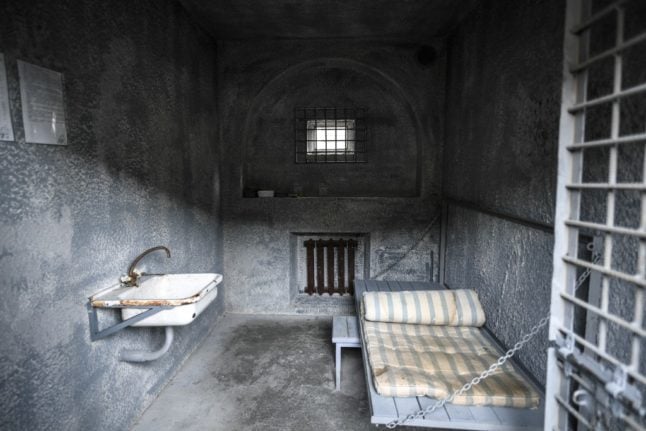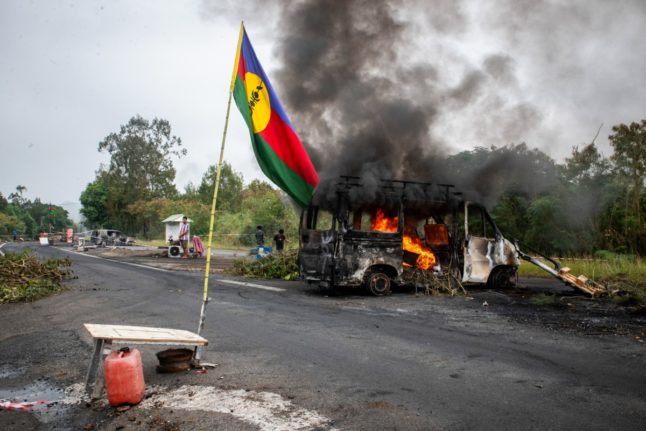The grey box is a mock-up of Kremlin critic Alexei Navalny’s punishment prison cell that his team unveiled in the French capital on Tuesday.
The leading opposition voice to Russian President Vladimir Putin is being guarded so closely that his team said they still did not know if the 46-year-old was aware a film about him got an Oscar.
Martine Fuguet, one of the visitors, said Navalny was being kept “in a cage like an animal”.
Vsevolod Tlelov, an opposition activist who fled Russia last year, said the installation represented “a different universe”.
“This is the life we don’t deserve.”
Navalny is serving a nine-year sentence on embezzlement and other charges that his supporters see as a punishment for him challenging the Kremlin.
His team set up the replica of his cell – “a prison inside a prison” – in Paris to raise awareness of the dire conditions he’s held in.
The installation mirrors a punishment cell where Navalny has spent more than a hundred days over the past six months.
Inside the dimly lit box is a little sink, a toilet on the ground and a simple bed, which is folded away during the day.
Supporters scribbled messages of support on the outer side of the box including “Navalny out, Putin in!”
‘I think he knows’
Navalny’s spokeswoman Kira Yarmysh said it was not clear if Russia’s top opposition figure knew that a film examining his poisoning had won the Oscar for best documentary feature on Sunday.
“I think he knows,” Yarmysh told AFP on the sidelines of the ceremony. One of his lawyers was able to tell him the news during a recent court hearing, she added. “We know that he had heard something,” she said.
Navalny told the lawyer “he was grateful,” Yarmysh added.
She said maintaining contact with Navalny was hard, adding he was being denied medical treatment.
Navalny was poisoned with Novichok, a Soviet-made nerve agent, in 2020. He barely survived, and accused Putin of being behind the attack.
Ivan Zhdanov, head of Navalny’s Anti-Corruption Fund, said it was important to raise awareness of the “monstrous” conditions Navalny was being held in.
“If Alexei becomes free, Putin will not be in power,” he added.
The installation arrived from Germany and will remain in Paris for two weeks. It is open to the public day and night.
AFP



 Please whitelist us to continue reading.
Please whitelist us to continue reading.
Member comments